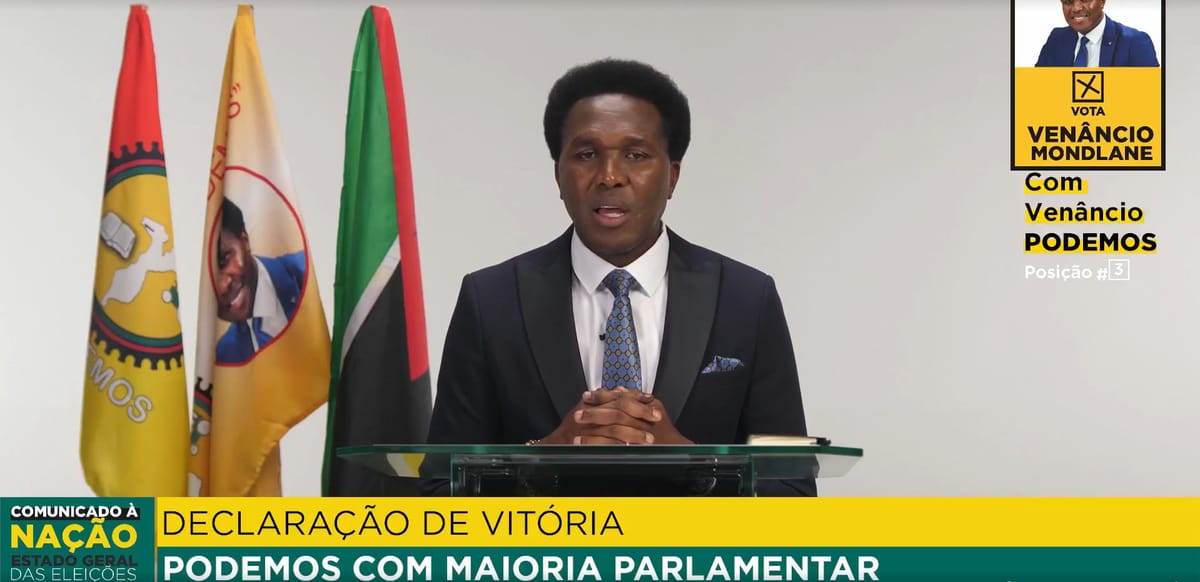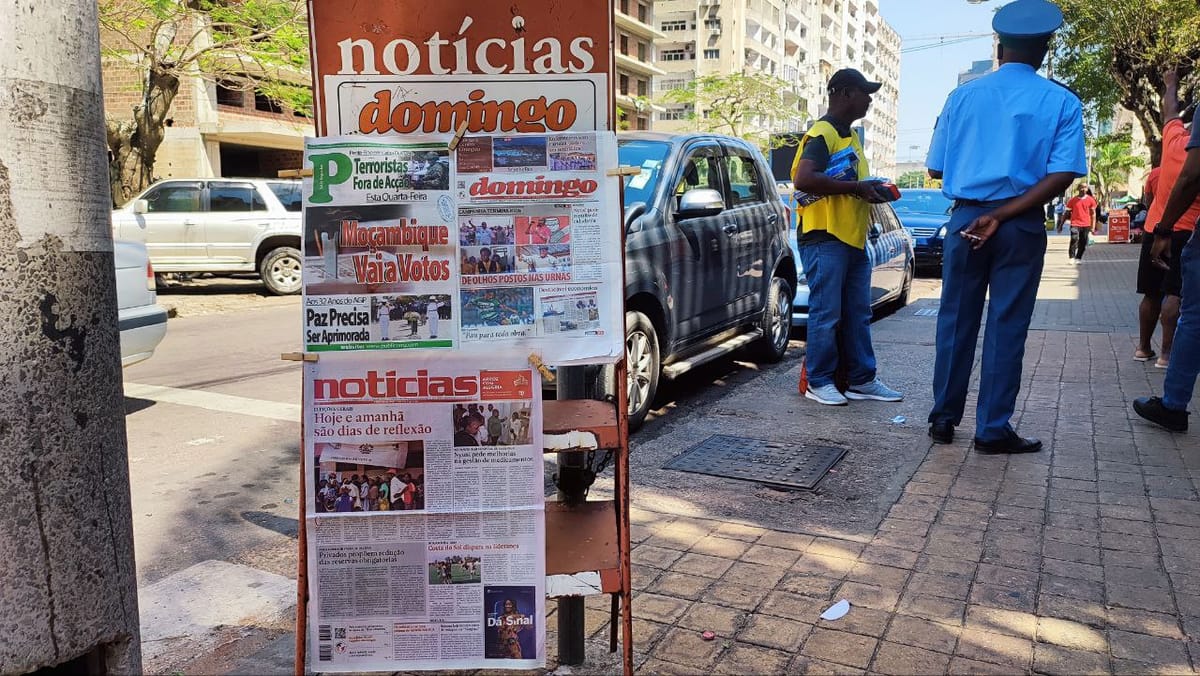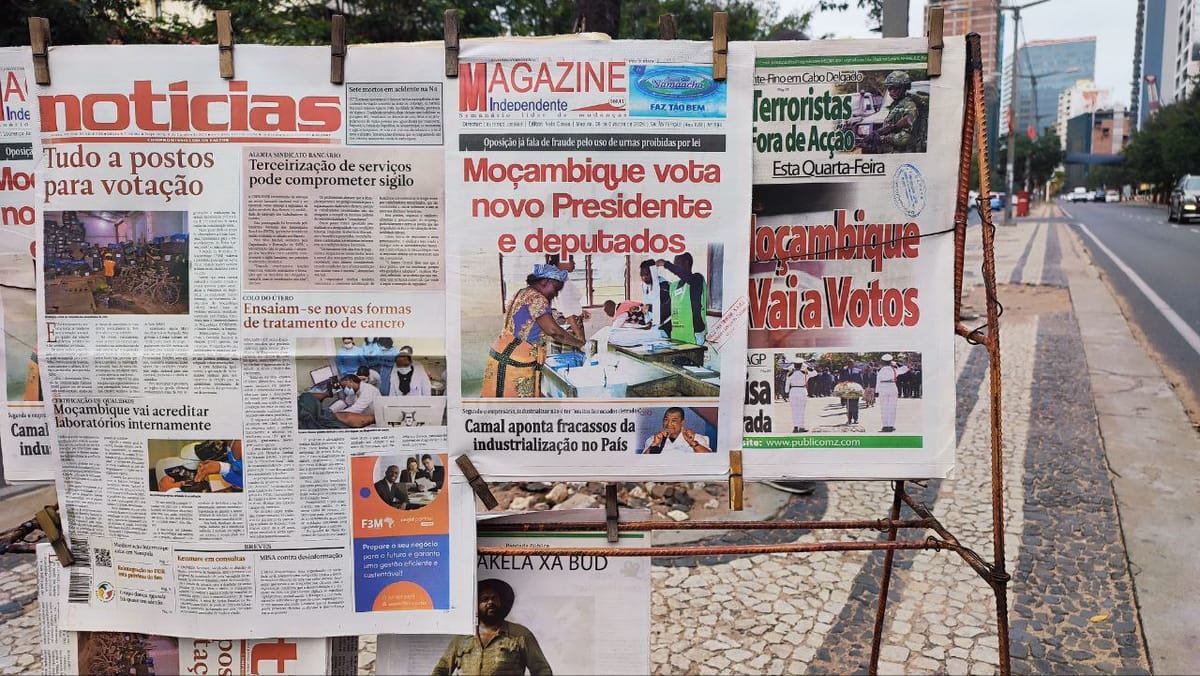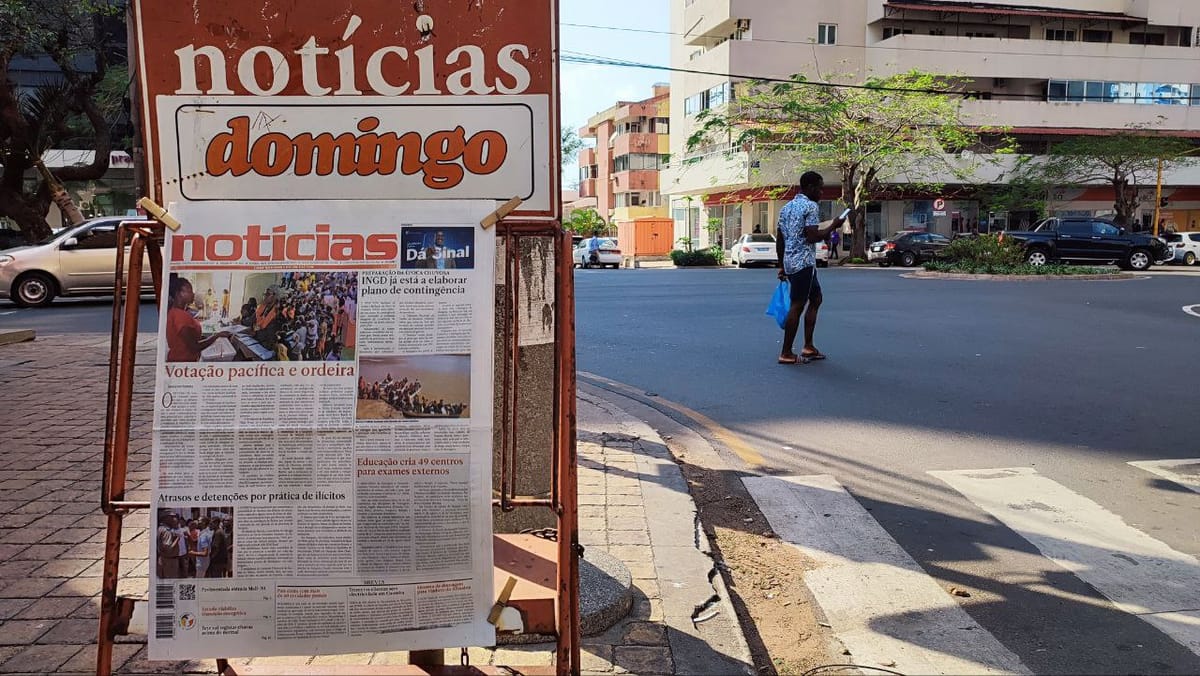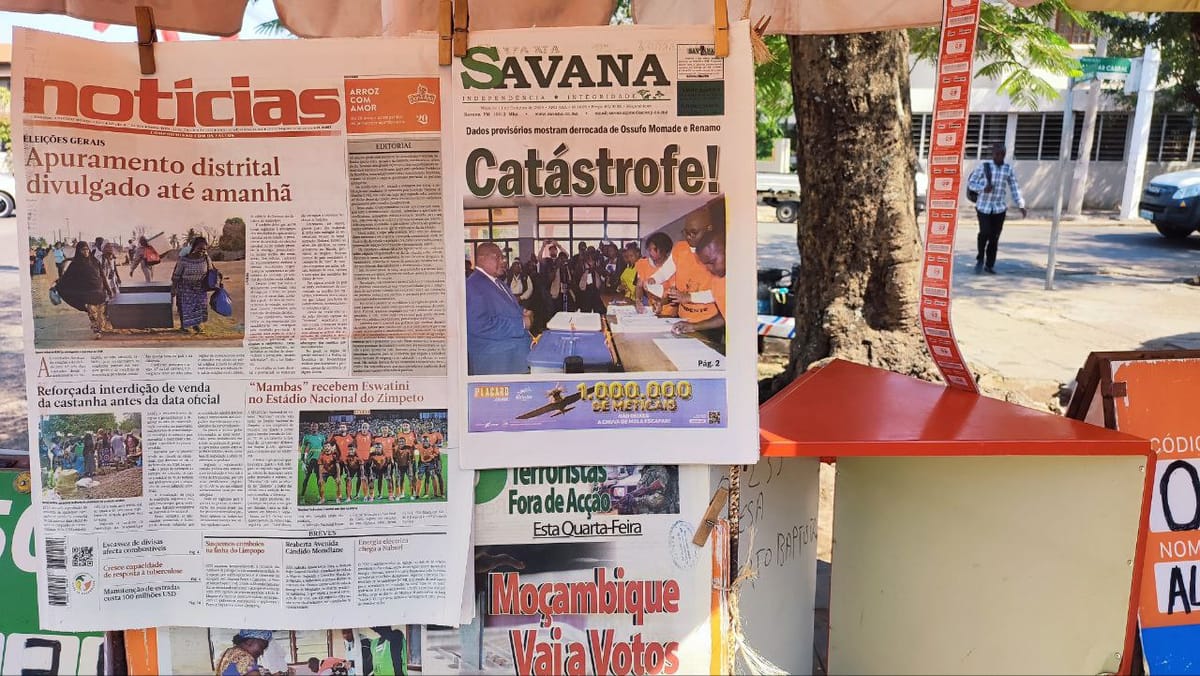Hello, and welcome to a big week in Mozambique. District and provincial results are trickling in from the national and provincial elections that took place last Wednesday; we are working on an article summing up the results so far, which should come out shortly after this newsletter today. Official national results are due within two weeks of polling day, so may not come out this week; and they in turn need to be confirmed by the Constitutional Council, which could take until the end of the year, if they are hotly contested.
But waiting for the result is for losers. If you want to win, you’ve got to claim victory early. That at least was the strategy always followed by Afonso Dhlakama, who led guerrilla movement-turned-opposition party Renamo from 1979 until his death in 2018. And it has been copied by Venâncio Mondlane, the most credible opposition candidate for the presidency this year, who declared victory on Thursday evening.
His closest contender, Daniel Chapo of Frelimo, has remained aloof from making such claims, as has the party, officially. But Frelimo has its ‘outriders’ available to make the same claims for it. The most famous is Egidio Vaz — who has simultaneously condemned Mondlane’s premature claim on his blog, and claimed Chapo has won on his Facebook page. Other such claims have been shared on social media and through more traditional media; in Nampula, three supposedly independent outlets called the election in favour of Frelimo, despite all the results sheets we have seen pointing the other way. And state-owned news agency AIM called the national elections for Frelimo and Chapo very early, while citing results that showed Mondlane ahead.
What’s going on? Expectations management. If either side stayed quiet while the other side claimed victory, they’d have a mountain to climb in terms of public opinion if they wanted to contest results two weeks later. Now that the public knows that both sides claim victory, they are prepared for the fight that is to come. What remains to be seen is the nature of that fight — will it be rhetorical, taking place on the airwaves, or will the supporters of Venancio Mondlane take to the streets when the CNE inevitably hands victory to Frelimo?
Week in Review
Monday
Bertolino Capitine, the deputy chief of Mozambique's armed forces, was dismissed after publicly criticising the government's handling of the Cabo Delgado insurgency. He highlighted a lack of strategy, poor equipment, and questionable casualty figures, calling for a formal declaration of war. His discontent may have stemmed from not being appointed chief of the general staff, a position given to a navy officer instead.
Key line:
Capitine had been publicly criticising the conduct of the war against insurgents in Cabo Delgado province, something that no government would tolerate, regardless of the fact that he is a former guerrilla commander with Renamo
Elsewhere, local militia forces have begun taking over military and police roles in Mueda, transparency watchdog the Centre for Public Integrity said. Meanwhile, President Filipe Nyusi announced a national peace and reconciliation commission amidst ongoing military successes against insurgents. But recent government declarations about the ongoing offensive in Macomia district have proved to be unreliable.
Tuesday
As elections approached, decentralisation emerged as a key topic for candidates, despite limited voter engagement. Politicians proposed relocating decision-making bodies from Maputo to central cities like Beira to address regional inequalities. The shift could stimulate development and infrastructure upgrades, funded by donors and development banks, while potentially reducing governmental redundancies.
Key line:
The idea is that jobs and development would follow them around, and infrastructure would have to be upgraded around them. The vast inequality between the regions could thus begin to be reduced.
Elsewhere, concerns about election integrity persisted, with allegations of fraud against the ruling Frelimo party. Independent candidate Venâncio Mondlane has gained significant support, energising younger voters. Meanwhile, Mozambique is under scrutiny for its anti-money laundering measures as it aims to exit the so-called “grey list” of underperforming countriest. As voting logistics were finalised, the political landscape remained tense ahead of the polls.
Wednesday
Election observers reported that opposition party delegates were often denied access to polling stations, raising concerns over electoral integrity. The ruling Frelimo party was accused of manipulating the electoral process, including staffing polling stations with supporters and registering non-existent voters. As voting concluded, allegations of irregularities cast doubt on the legitimacy of the election outcomes.
Thursday
Wednesday’s elections brought significant shifts in the political landscape. Venâncio Mondlane, previously of Renamo, is claiming victory, suggesting he has garnered substantial support against the ruling Frelimo party, despite allegations of electoral malpractice. Early indicators imply that Renamo's influence has waned, potentially removing its status as the second-largest party in parliament.
The National Elections Commission is expected to announce preliminary results within 15 days, but the overall political ramifications could reshape Mozambique's future, challenging existing party loyalties and structures.
Key line:
What happens next depends on two things: the votes, and the extent to which Frelimo is able to rewrite them if necessary.
Friday
Following Mozambique's presidential election, opposition candidate Venâncio Mondlane claims victory, but official results are pending. District-level results are expected soon, raising concerns about potential electoral manipulation by the ruling Frelimo party, particularly in Nampula where Mondlane shows a slight lead. Reports of irregularities, such as incomplete result postings and improper recording methods, fuel allegations of vote-rigging. Amidst this uncertainty, speculation about Frelimo's strategy to preemptively declare victory further complicates the situation.
Key line:
If there is to be any sort of challenge to attempts to overturn the vote by the Frelimo-controlled electoral authorities, it is important that credible people carry out their own vote counts and collect evidence of the genuine results.
Elsewhere, incidents of unrest, including police violence and public protests, reflect citizens' scrutiny of the election process. Meanwhile, fuel traders face import challenges due to foreign currency shortages, and a kidnapping incident highlights that ongoing, unresolved scourge of Mozambican society.



